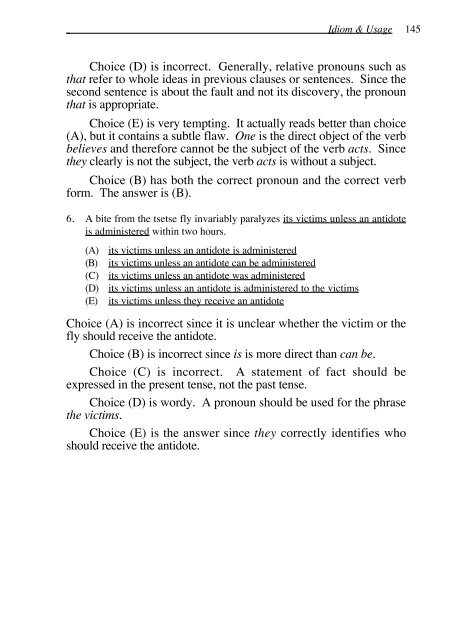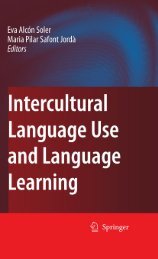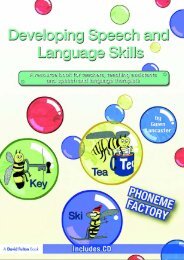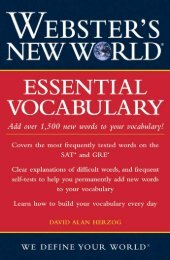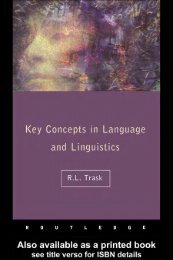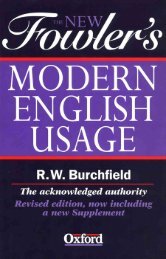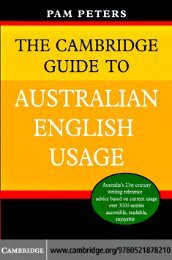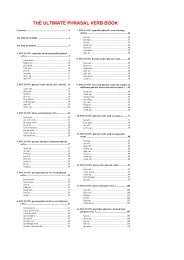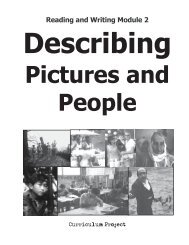Vocabulary 4000 - Noel's ESL eBook Library
Vocabulary 4000 - Noel's ESL eBook Library
Vocabulary 4000 - Noel's ESL eBook Library
You also want an ePaper? Increase the reach of your titles
YUMPU automatically turns print PDFs into web optimized ePapers that Google loves.
Idiom & Usage 145<br />
Choice (D) is incorrect. Generally, relative pronouns such as<br />
that refer to whole ideas in previous clauses or sentences. Since the<br />
second sentence is about the fault and not its discovery, the pronoun<br />
that is appropriate.<br />
Choice (E) is very tempting. It actually reads better than choice<br />
(A), but it contains a subtle flaw. One is the direct object of the verb<br />
believes and therefore cannot be the subject of the verb acts. Since<br />
they clearly is not the subject, the verb acts is without a subject.<br />
Choice (B) has both the correct pronoun and the correct verb<br />
form. The answer is (B).<br />
6. A bite from the tsetse fly invariably paralyzes its victims unless an antidote<br />
is administered within two hours.<br />
(A) its victims unless an antidote is administered<br />
(B) its victims unless an antidote can be administered<br />
(C) its victims unless an antidote was administered<br />
(D) its victims unless an antidote is administered to the victims<br />
(E) its victims unless they receive an antidote<br />
Choice (A) is incorrect since it is unclear whether the victim or the<br />
fly should receive the antidote.<br />
Choice (B) is incorrect since is is more direct than can be.<br />
Choice (C) is incorrect. A statement of fact should be<br />
expressed in the present tense, not the past tense.<br />
Choice (D) is wordy. A pronoun should be used for the phrase<br />
the victims.<br />
Choice (E) is the answer since they correctly identifies who<br />
should receive the antidote.


